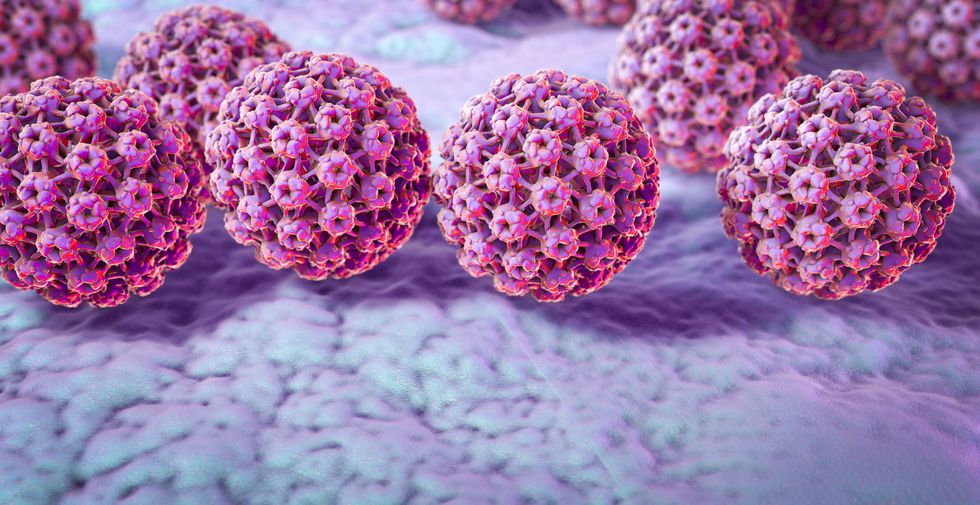Since 2008, HPV vaccinations have been available to young women between the ages of 12 and 18 in the UK (with 12 and 13-year-old boys expected to be eligible for the jab from this later this year).
The vaccination is an important one, because it protects against human papillomavirus (HPV), a sexually transmitted infection which can cause various types of cancer.
Despite that sounding all kinds of scary, it needn't be. Four in every five people (80%) will get HPV at some point in their lives, and most won't ever know they've got it. There are over 100 types of HPV and the majority are nothing to worry about.
But certain strains of the virus can cause cancer. The most commonly known one is cervical cancer, with 99.7% of all cases being caused by HPV. It's perhaps lesser known, however, that HPV can also cause other cancers such as vaginal, anal, penile and some types of mouth and throat cancer.
So how does a predominantly harmless virus manifest itself into cancer in some cases? Cancer Research UK's Karis Betts talks us through it.
"HPV is a common virus that most people who are sexually active will have at some point in their life. Having HPV doesn’t mean you have or will definitely get cancer," she says.
"Most of the time the infection will clear up by itself without causing any harm, but for some high risk strains of the virus, infections that don’t go away can cause DNA damage which can lead to cancer."
There are 13 high risk strains of HPV that are known to cause cervical cancer, and it's this that makes cervical screenings so important to attend. As of this year, cervical screenings in England will change to become 'HPV primary screenings' (Wales already have them, and Scotland will follow suit next year) which means doctors will test your samples first for HPV.
If you're found to have one of the strains of HPV that's identified as high risk for cervical cancer, you are theoretically vulnerable to developing cervical cancer, so the cells taken from your cervix will be analysed for any abnormalities. If you aren't found to have HPV, doctors won't bother looking at your cervical cells, because it's almost impossible for you to get cervical cancer without having HPV.
You can read more on all that here, but the main thing to remember is that it's important to attend your cervical screening when you're invited for it. Once you turn 25, you'll be invited every three years for a screening. Screenings can pick up pre-cancerous cells, which can be burnt off to prevent cancer from developing.
So make sure you go. It could literally save your life.
Follow Cat on Instagram.














